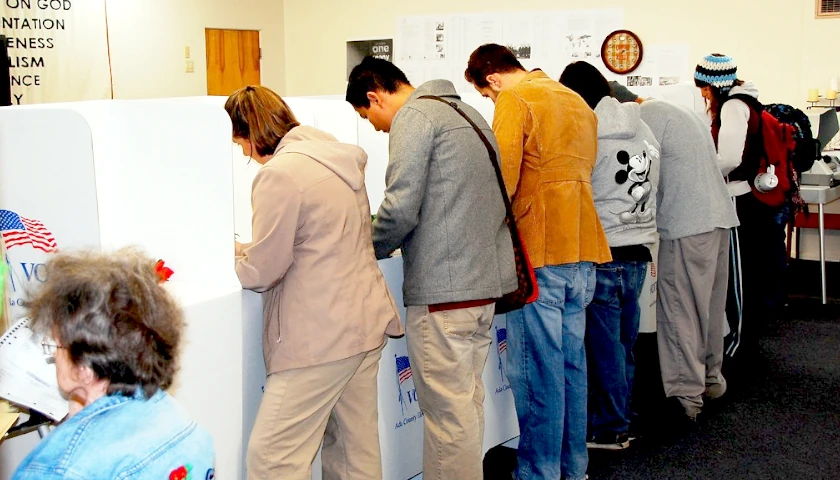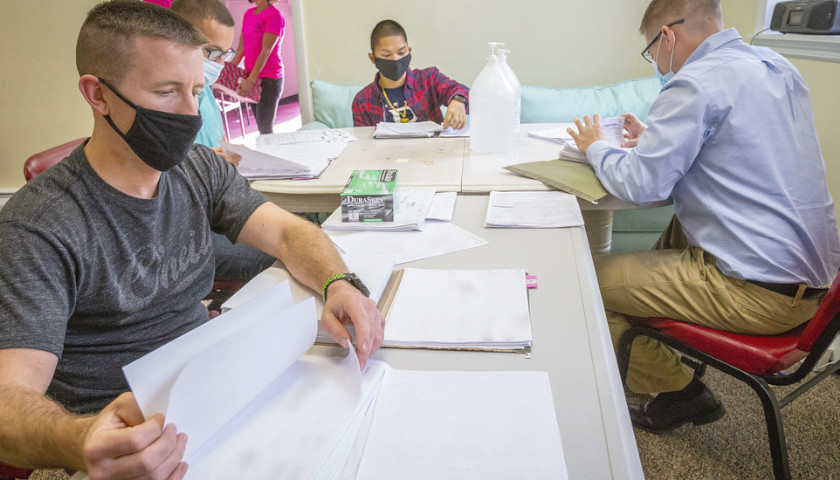The Make Elections Fair PAC has filed a lawsuit against Arizona lawmakers, claiming that the description of the ballot measure provided to voters is misleading and confusing. The group argues that the language, crafted by the Arizona Legislative Council, suggests that the initiative would mandate ranked choice voting.
Sarah Smallhouse, chairman of the campaign, stated that lawmakers refused to amend the description as requested, protecting their own interests in closed primaries. The PAC is asking the court to rewrite the description in a “neutral tone.” They claim placing ranked choice voting in the description is deceptive.
In the lawsuit, the group argues “Counsel for the Committee expressed concerns that the draft analysis took matters out of order and could be confusing to voters. The Committee’s counsel therefore proposed moving the description of the voter-ranking changes the Initiative would allow after the primary-election changes the Initiative would require.” The suit then refers the court to a video of the lawmakers’ meeting, “See Video at 3:14:43.”
They PAC claims, “without making that change or any others, and without any discussion, the Legislative Council unanimously adopted the draft analysis as its final analysis.”
According to the group’s website, the Make Elections Fair Act aims to eliminate partisan primaries, placing all candidates on the same ballot regardless of political affiliation and allowing voters to choose their favorites without separate ballots. The website states the initiative seeks to “dismantle the current system”, which often excludes independent and unaffiliated voters from primary elections. The PAC says it believes it will promote competition, reduce polarization, and ensure that elected officials are more representative of the entire electorate.
State lawmakers are responsible for drafting and approving the descriptions of ballot proposals included in voter information pamphlets. The lawsuit alleges that the lawmakers violated Arizona law by approving a summary that could mislead voters. On July 8, a legislative panel approved a summary that emphasized the initiative’s allowance for ranked choice voting (RCV).
RCV is a system where voters rank candidates by preference. If no candidate wins a majority, the candidate with the fewest votes is eliminated, and their votes are redistributed until a winner is determined. The PAC claims, while the initiative permits RCV in general elections, it does not mandate its use, leaving the decision to adopt the system up to the state legislature and the governor. According to Capitol Media Services, the group considered RCV but scrapped it because the polling wasn’t favorable.
Opponents like Scot Mussi, President of the Arizona Free Enterprise Club, argues that the initiative would centralize too much power in the hands of the Arizona Secretary of State and could lead to ballots dominated by candidates from only one party. Mussi called the effort “the most important one facing voters” and criticized it as a “California-style election scheme” that could be undemocratic and unfair to future generations.
The Free Enterprise Club wrote:
If passed by voters, The Make Elections (Un)Fair Act, which copies the California voting system, would do the following for future Arizona elections:
- Allows one politician, the Arizona Secretary of State, to decide how many candidates qualify for the general election ballot for every single contest, including his or her own race.
- Would result in some races where candidates from only one political party appear on the general election ballot.
- Would force voters to navigate two completely different voting systems on the same ballot, with some races requiring voters to rank candidates and others that do not.
- Will increase tabulation errors, create longer lines at the polls, and significantly delay election results.
– – –
Christy Kelly is a reporter at The Arizona Sun Times and The Star News Network. Follow Christy on Twitter / X. Email tips to [email protected].
Photo “People Voting” by Big Dubya. CC BY-NC-ND 2.0.





